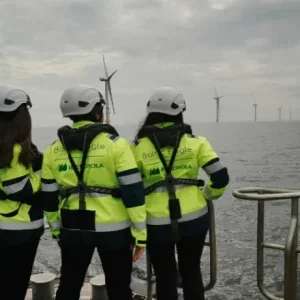The cracks were identified in the steel nuclear reactor pressure vessels in nuclear reactors Doel 3 and Tihange 2 in Belgium.
Failure of the vessels, which contain highly radioactive nuclear fuel cores, could cause catastrophic nuclear accidents.
Two leading material scientists Professor Walter Bogaerts and Professor Digby MacDonald said that the unexpected cracking could be related to corrosion from normal operation, with potential implications for reactors worldwide.
Greenpeace Belgium energy campaigner Eloi Glorieux said: "What we are seeing in Belgium is potentially devastating for nuclear reactors globally due to the increased risk of a catastrophic failure.
"If damage is discovered, the reactors must remain shut down until and unless safety and pressure vessel integrity can be guaranteed."
After the cracks were detected, the two reactors have been closed since March 2014. Further tests revealed an unexplained advanced embrittlement of the steel of the test sample.
However, the detections were dismissed as manufacturing defects by the operator of the reactors, Electrabel, claimed Greenpeace.
Additional tests conducted in 2014 discovered 13,047 cracks in Doel 3 and 3,149 in Tihange 2.
Glorieux said: "Any reactor with such cracking must be kept offline, until and unless the cracking is understood and safety is guaranteed. Anything less would be insane given the risk of a severe nuclear accident."






